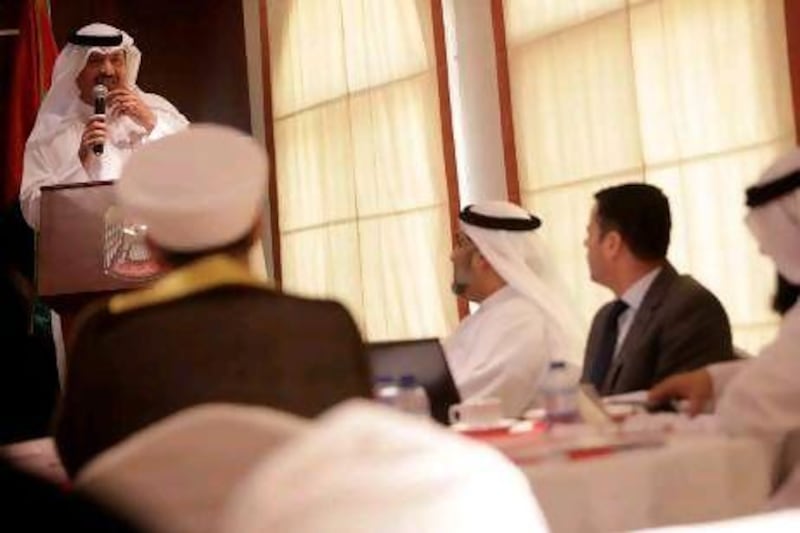ABU DHABI // Nine in 10 sex crimes against women go unreported, a senior policeman said yesterday.
Dr Mohamed Murad Abdulla, the director of Dubai Police decision-making support centre, told a conference on violence against women that there were many reasons for victims being reluctant to report a sexual attack.
Some women did not want to risk losing their jobs or feared that their attacker might seek revenge, while others did not want to damage their attacker's reputation - particularly if the assailant was a relative.
But many feared that reporting a crime to police could lead to harassment or contempt - or even to a charge of sex outside of marriage being brought against them.
Dr Abdulla told the conference at the National Bureau of Statistics in Abu Dhabi that a recent police study found only 9.5 per cent of women who had been victims of sexual crimes had reported them.
They were far more likely to go to the police if they had been the victim of a severe assault (80 per cent) or a threat (50 per cent).
"We found a lot of shadow crimes [unreported], not in police records, and this we must keep in mind to evaluate the size of violence," said Dr Abdulla.
He added that Arabian Gulf women, in particular, tended to be somewhat timid when it came to reporting sex crimes. "Unfortunately, some customs and traditions made some bad practices of violence against women normal," he said. "Which is a result of ignorance of our religious values."
The Arabian Gulf differed from the wider Arab world in that society was more traditional, with arranged and intra-family marriage and high dowries common.
On top of this, there remained a widespread fear of being stigmatised, or of women being pushed by their families to accept the violence rather than go through a divorce.
Representatives from various women's organisations at the conference said police failed to take a hard or consistent line with violent husbands.
"Someone from the police, without telling a woman how to deal with it, would just tell her to accept it and try to get the couple to be good together again," said Noor Gabran, a researcher at the Family Development Foundation. "By doing this, they encourage it.
Dr Jamila Khanji, director of the society services division at the foundation, said she had seen several women who had become pregnant as a result of rape, but had not reported it for fear of the consequences.
"I see that, if raped, family and society view the woman as if she must have done something to let this happen," said Dr Khanji. "They would be seen as a criminal.
"And it would also be a scandal for the family, one they cannot deal with, and cannot help her in."
Dr Abdulla also said there was a problem with criminal justice agencies not recording reported attacks on women.
"This situation reflects a gap in police work and negligence from the police officer, ignorance of his task and misinformation to the public, and giving a false image of security situation," he said.
In some cases, criminal justice agencies deliberately changed charges. He gave the example of rape cases - a criminal act - being recorded as sexual assault and beating - two misdemeanours.
An earlier version of this article excised part of Dr Mohamed Murad Abdulla's job title. He is director only of the Dubai Police decision-making support centre, not of the whole force.






